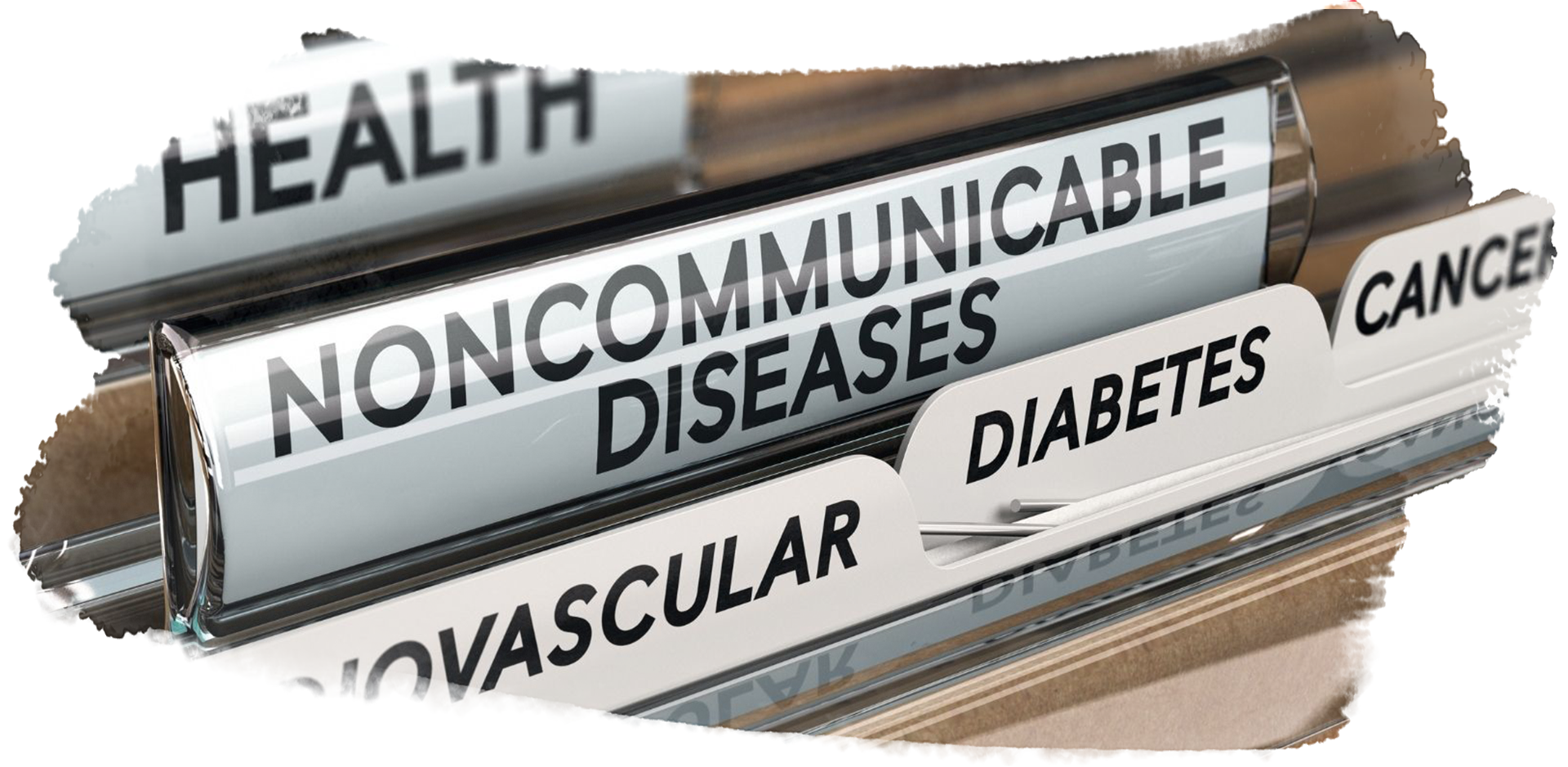The global rise of noncommunicable diseases
Noncommunicable diseases are the fundamental crisis of modern healthcare. Heart disease, obesity, type 2 diabetes and other chronic diseases are responsible for most premature deaths around the world, including the associated and tremendous suffering of patients and their loved ones. Globally, the most important risk factor for these diseases is poor nutrition.

Noncommunicable diseases account for 60 – 80% of direct healthcare costs as well as additional billions of Euros in economic output losses. Scientists, pharmacists and all healthcare professionals focus a huge part of their training and practice on treating and managing these diseases. However, at the same time, we know that most could be prevented altogether with certain lifestyle changes.
By successfully empowering people to quit smoking, strongly limit alcohol intake, move more and eat healthily, up to 80% of cardiovascular diseases and type 2 diabetes and up to 40% of cancer cases could be prevented. These actions are what will drive a true transformation of global health and healthcare systems.

How does nutrition affect chronic disease?
Healthy nutrition plays a particularly important role among the lifestyle factors mentioned. It is one of the most effective, if not the most powerful tool, to prevent (and treat) most chronic diseases.
The general nutritional pattern defined as “healthy” based on international research and guidelines is also the most effective to fight chronic disease. It’s pretty simple: our diets should focus on unprocessed foods while being centred around plant foods. This is what’s known as whole food, plant-based nutrition.

What can you do to tackle the chronic disease crisis?
According to the findings of the 2019 report “Food in the Anthropocene: the EAT–Lancet Commission on healthy diets from sustainable food systems”, a global shift towards whole food, plant-based diets could save over 10 million lives by 2050. The time has come to make big changes to what we all eat in order to overcome the fundamental global crisis of chronic disease, to relieve our overburdened healthcare systems, and, above all, to achieve optimal health and a better quality of life for all individuals.
Learn more in our online nutrition courses at the PAN Academy
The clips below are short extracts from lessons in our online nutrition courses. Find out about how nutrition influences individual health and more at the PAN Academy.
Module #1 Lesson 4 – Oxidative Stress & Chronic Low-Grade Inflammation
Metabolic stress refers to oxidative stress that’s caused by either insufficient or excessive nutrient supply. Getting permanently too few or too many nutrients in our diet can lead to chronic low-grade inflammation.
Disclaimer: In this video, the oxidative stress mechanisms are simplified. Only one of the root causes is mentioned.
Module #1 Lesson 3 – Health Risks of Red Meat
Red meat and processed meat (such as sausages or cold cuts) are recurrently associated with health risks. We take a deep dive into what the latest science can tell us about nutrition and health in lesson 3.
Are you ready to make a difference?
There are many ways to join us in redefining the role of nutrition in healthcare. Support our work with a donation, or become a PAN member and take your nutrition education into your own hands.

Making better physicians
Ready to improve your nutrition knowledge?
Sign up for the PAN Academy and take our free online courses on nutrition science.
Mini Modules on Diet-Related Diseases
This series of short modules addresses common diet-related diseases such as heart disease, hypertension and type 2 diabetes. Learn the causes and which patients are at risk, and find out practical solutions to managing these diseases through whole food, plant-based eating.



Making better physicians
Ready to improve your nutrition knowledge?
Sign up to the PAN Academy and take our free online courses on nutrition science.
Mini Modules on Diet-Related Diseases
This series of short modules addresses common diet-related diseases such as heart disease, hypertension and type 2 diabetes. Learn the causes and which patients are at risk, and find out practical solutions to managing these diseases through whole food, plant-based eating.

